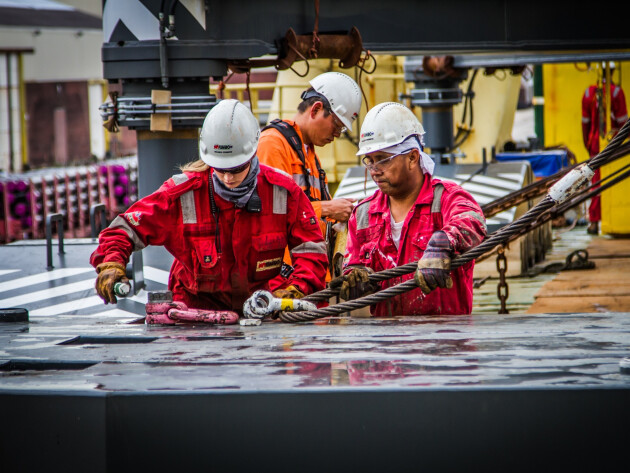
Maritime Authority
"A thriving Dutch shipping industry depends on a dedicated maritime authority. The Netherlands is currently losing ground in the global fleet market. Restoring the prominence of a large, strong, and high-quality Dutch flag must become a priority, fostering maritime entrepreneurship."
Why is this important?
Seagoing ships must meet various requirements to operate. These requirements derive from international conventions, European directives, and national laws. These regulations cover areas such as safety, labor laws, and environmental protection. The flagstate The flag state is the country in which a ship is registered and whose flag it flies. This country is responsible for ensuring compliance with international regulations, safety, environmental standards, and working conditions onboard the ship, regardless of where it sails. of a ship is responsible to ensure a ship is compliant to these mandatory requirements.
In the Netherlands, the Human Environment and Transport Inspectorate (ILT) The Human Environment and Transport Inspectorate (ILT) is a Dutch regulatory body that oversees safety, sustainability, and compliance with legislation in transport, infrastructure, the environment, and housing corporations. It operates under the Ministry of Infrastructure and Water Management, ensuring that regulations are effectively implemented in the Netherlands. oversees Dutch-flagged ships, ensuring they meet these obligations and are issuing necessary certificates and permits. Policy and legislation for seagoing vessels fall under the Ministry of Infrastructure and Water Management (IenW) The Dutch Ministry of Infrastructure and Water Management (IenW) is working towards a livable, accessible, and safe Netherlands. The ministry focuses on transportation, water management, climate adaptation, and environmental quality. , which also leads negotiations with organizations like the International Maritime Organization (IMO) The IMO (International Maritime Organization) is a UN agency established in 1948, responsible for promoting maritime safety, security, and environmental protection by setting global standards for shipping practices and regulations. and the International Labour Organization (ILO) The International Labour Organization is a part of the United Nations in Geneva that establishes binding international treaties in the field of labor. The ILO includes employers' organizations, trade unions, and governments. . Effective coordination between these bodies is essential to ensure that policies and regulations are being applied as intended.

Article: The flag and register
Every day, tens of thousands of ships navigate the world's seas, ranging from massive container vessels to the smallest tugs in port, and from fast-moving reefers to slow-moving supertankers.
What many people don’t realize, however, is that each of these ships has an invisible connection to a specific country. While this link may seem obscure, it is quite apparent: the flag of that country flies on board the vessel. In the maritime industry, the country associated with the flag is referred to as the "flag state The flag state is the country in which a ship is registered and whose flag it flies. This country is responsible for ensuring compliance with international regulations, safety, environmental standards, and working conditions onboard the ship, regardless of where it sails. ."
In this article, we will explore why the flag under which a ship sails can be a potential game changer.
How should we solve it?
While it seems logical that policy and implementation should align smoothly, in practice, this will often appear to be far more complex. The KVNR seeks to address this issue. All government bodies that are involved in authorizing seagoing ships to operate and transport goods or passengers should collaborate effectively. To achieve this, the KVNR is advocating for the creation of a dedicated maritime authority.
A maritime authority would ensure that the Dutch flag remains attractive, competitive and high-quality, while also stimulating maritime entrepreneurship. Other important topics that must not be overlooked are subjects such as safety, environmental impact, and the social welfare of seafarers.
A more efficient Dutch shipping register would also generate ecnomic benefits, according to a study done by the Economic Bureau of Amsterdam. Their analysis shows that an improved register would increase both the number of ships sailing under the Dutch flag, the employment opportunities and economic value created by the shipping industry.
State of affairs - November 01, 2024
October 3, 2024:
During the Maritime Committee meeting in the House of Representatives on October 3, 2024, SGP and NSC questioned Minister Madlener regarding the current status of maritime policy. In response, Minister Madlener addressed these concerns in a parliamentary letter dated October 16, 2024.
In his letter, Minister Madlener outlined several initiatives the government is pursuing to enhance the attractiveness of the Dutch flag and improve the maritime business climate. He acknowledged the ongoing decline in the market share of the Dutch flag compared to the global fleet, expressing doubts about the feasibility of maintaining this share.
The KVNR finds this response disappointing, as it reflects a lack of ambition to address the issue. In light of this, the KVNR plans to propose its own additional policy measures aimed at reversing this decline and facilitating the growth of the Dutch flag fleet, with the goal of restoring market share.
January 30, 2024:
On January 30, 2024, the Lower House approved a motion put forth by CDA MP Eline Vedder, calling on the government to establish a maritime authority. The motion received support from ChristenUnie, SGP, BBB, and VVD. During the vote, members of PVV, NSC, D66, SP, Volt, FvD, and JA21 also expressed their backing. Consequently, a significant majority of the House of Representatives (119 votes) endorsed the motion, providing a clear mandate for the government.

Expert en press contact



